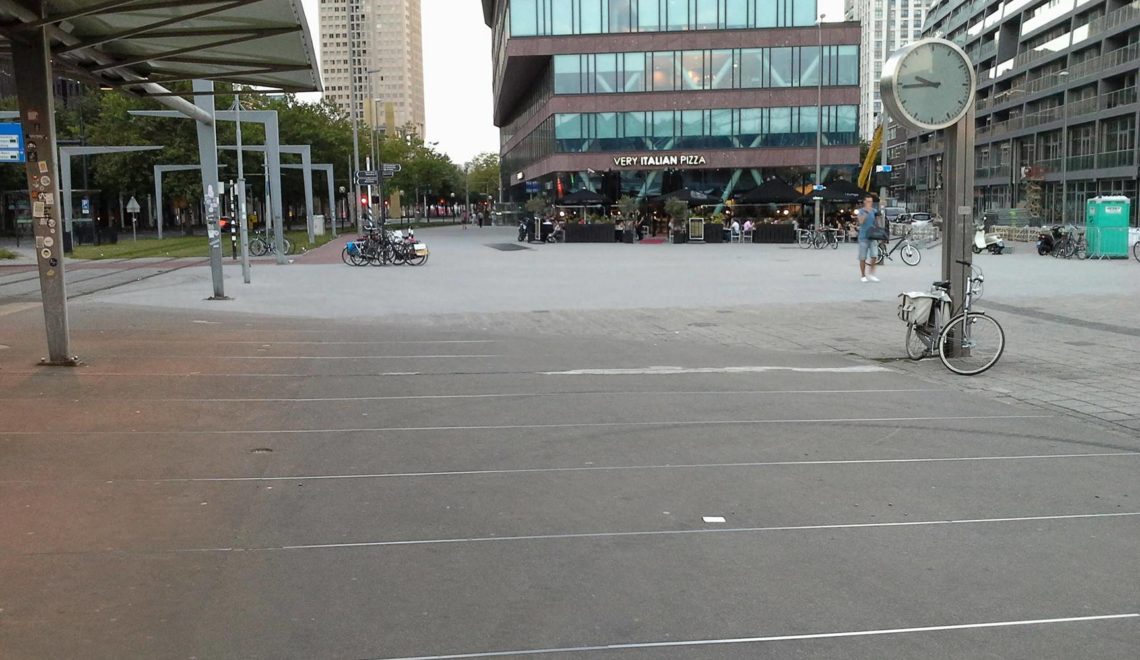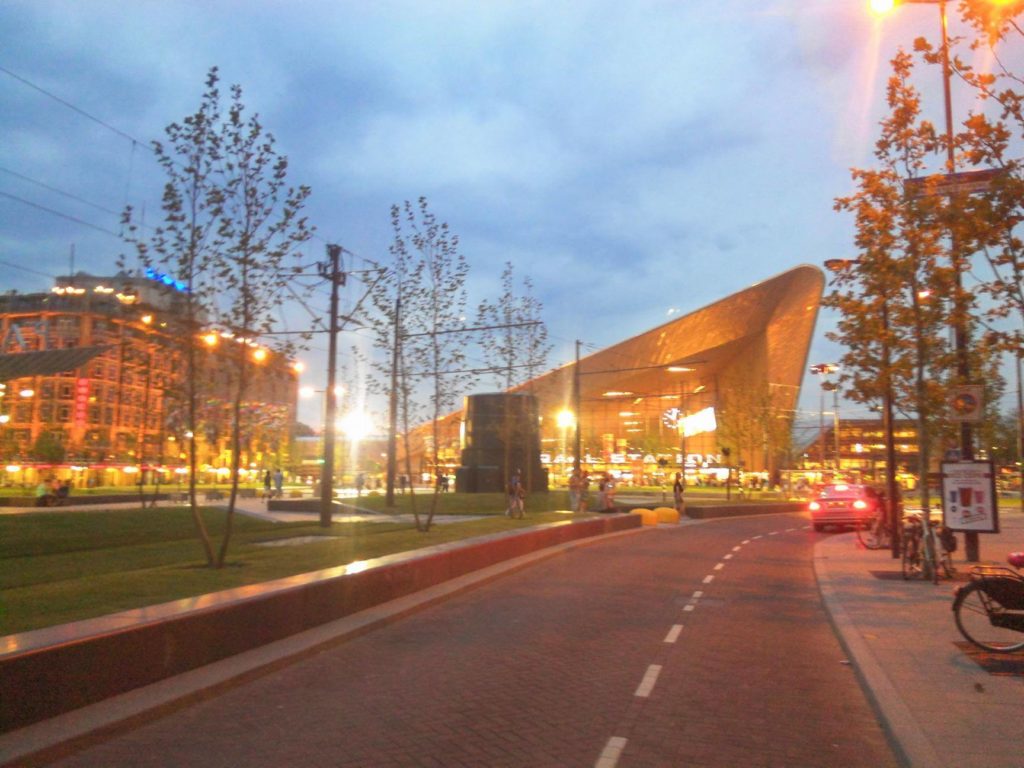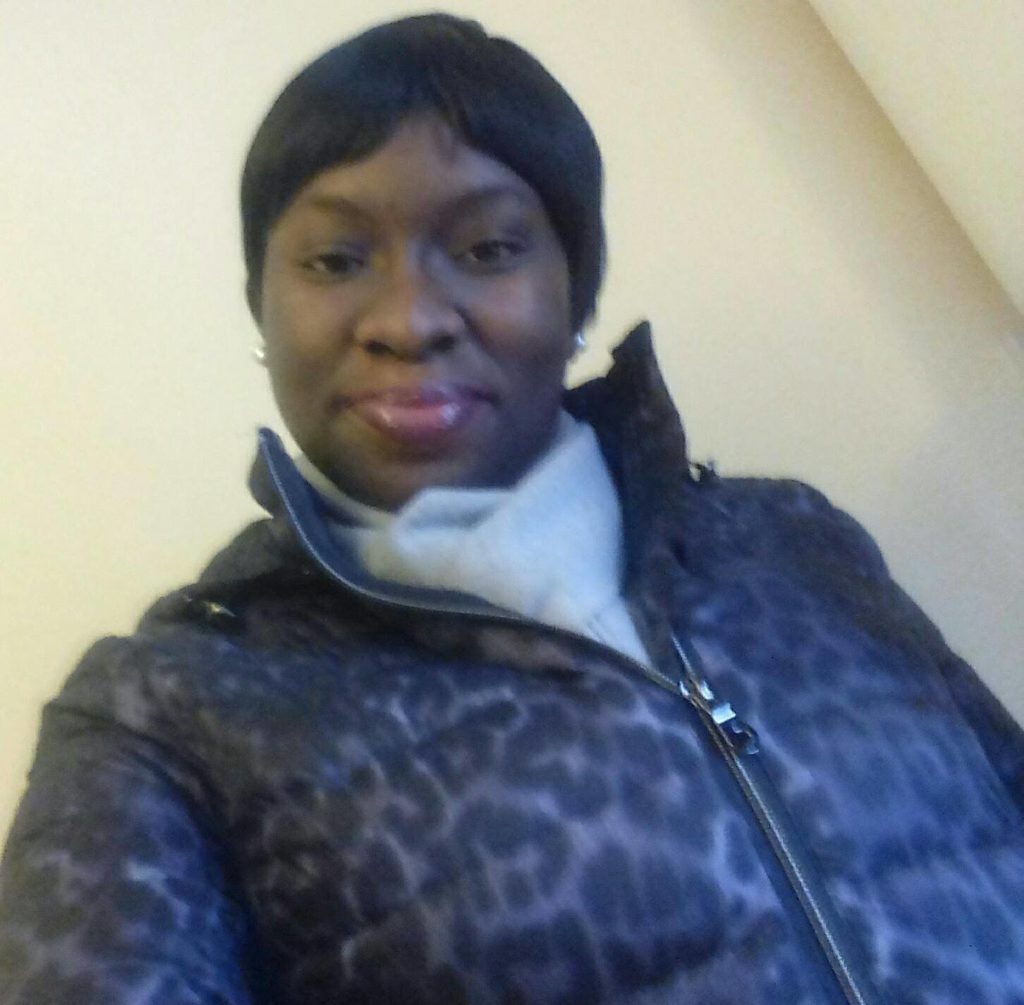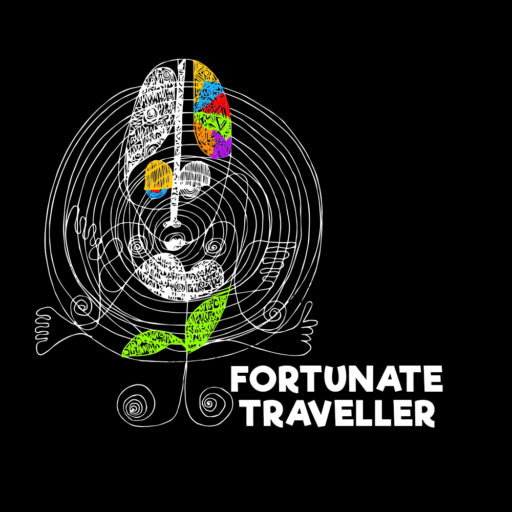
An early drizzle made a pitched percussion on the airplane window that morning. Dressed in a mid-thigh red gown, black leggings and a jacket of excitement, I smiled to myself as I remembered a friend called it a short, hot, red dress. It must have been the hotness of the red dress, then, that made the immigration officer, seated in a cubicle beyond the area demarcated by a large DEPARTURES in Murtala Mohammed International Airport, after receiving my passport with a nod, look at my Schengen visa twice, look up at me, then back at my visa, asking what I was going to the Netherlands for. I was going for a medical conference and he asked which medical school I was. I was a doctor and not a medical student. Afterwards, we went back and forth about where I worked and how old I was and how sure I was about the fact that I was a doctor. I obviously looked too young to carry the heavy title of ‘doctor’ on my weak shoulders. At the last minute, I ditched the idea of giving bitingly sarcastic replies. Instead, I laughed all the way through the queries and I wondered whoever said a doctor must look a certain way or be a particular gender.
I could still see myself in the last minute rush to get a visa because my first application with my virgin passport was rejected. It was followed by a frenzied journey back to Lagos and a new application accompanied by fervent prayers. It turned out to be a mere baptism of fire though as subsequent visa applications were smooth. My passport had been deflowered.
I still was excited I got a cheap Royal Air Maroc ticket. Little did I know that the awoof was going to run my stomach. I should have known, though, when I didn’t understand which language the flight captain made all his announcements in. I should have known, by the lack of online entertainment in the airbus and the air hostesses that struggled with English that this flight was going to end with a loss. Later, I would retrieve my luggage from the conveyor belt at Schiphol to discover it had been broken into and my wristwatches and necklaces had developed wings and flown away and I would, from then on, stick to KLM/Air France/British Airways no matter how expensive they were.
And now in Amsterdam, in this beautiful Schiphol airport, I had to pretend. Pretend as if toilets did not feel like a beautiful dining room; pretend as if I wasn’t comparing this massive and every shade of pristineness with the dampness and antiquation of Murtala Mohammed Airport; pretend as if this colourful airport was not raising my blood pressure; pretend as if I wasn’t asking myself where the most populous black country in the world got it all wrong. In subsequent years, I would see the monumental Charles De Gaulle and JFK and the overwhelming Heathrow and Manchester and Birmingham Airports but, by then, I would have learnt how to shut it out, that strange feeling that descended on me, churned my tummy and ate me up like acid when I found myself outside my country, seeing things those countries have but my country did not have.
Some days before, a Malaysian airline was in an air crash. The plane left Schiphol on its way to Kuala Lumpur, but it was shot down by rebels in Ukraine. I shuddered to think that the victims passed here. What was on their mind when they were checking in? What plans did they have on return? Did they munch hot chips like I did while waiting to board? What did family and friends who saw them off to the airport feel when they heard tragedy had struck? I imagined the sound of broken hearts and dreams, yet Schiphol looked stoic and at peace with itself in the face of this mammoth tragedy.
That summer in Amsterdam, culture shock slapped me in the face. Not too far from me, a couple kissed passionately. One of them was leaving soon and I wondered who, as both of them had their hand luggage. The patron saints of custodian of morals – if there were any – did not deem it fit to lecture the woman about how it was only loose women who did that with men in the open. Everyone minded their business. It indeed set the precedent for my vision, so when I saw more people making out ferociously at train stations and the city centre, I was not surprised. Moving forward, I saw a woman who was almost same age as my mum shake her waist away in bum shorts. I waited with constricted breath. The writers of the code of conduct and guidelines of a woman’s life did not walk up to her. No one booed or jeered. The earth did not stop rotating; neither did the sun stop shining. Salaries did not even stop dropping into people’s accounts.
Not too far from me, a couple kissed passionately. One of them was leaving soon and I wondered who, as both of them had their hand luggage. The patron saints of custodian of morals – if there were any – did not deem it fit to lecture the woman about how it was only loose women who did that with men in the open. Everyone minded their business. It indeed set the precedent for my vision, so when I saw more people making out ferociously at train stations and the city centre, I was not surprised. Moving forward, I saw a woman who was almost same age as my mum shake her waist away in bum shorts. I waited with constricted breath. The writers of the code of conduct and guidelines of a woman’s life did not walk up to her. No one booed or jeered. The earth did not stop rotating; neither did the sun stop shining. Salaries did not even stop dropping into people’s accounts.
Further into the city, I was shocked to see homeless people of different races and people begging for money. Was this not the great ’abroad’ an average Nigerian could do anything to come to, even if it meant washing plates or living on the streets? I looked at the tarred and painted roads. Where was the pure gold, the streets of ’the abroad’ were overlaid with? Where was the money people packed on the streets? I thought about their families. What did they think those guys were doing? Perhaps some of those guys lived polished lives on Facebook, uploading pictures of themselves in fast food joints, two fingers in the air, woolly scarves and a head warmer, a smile thinning out their lips, a picture of utopian perfection and happiness that only existed in dreams engraved in Kandahar on the minds of onlookers. And fortunately whenever they sent money home, because of the exchange rate, it would appear like they were living large in Europe.
Years later, when I would be caught in the blizzard of brain drain, I would realize, that even in the search of a better career and greener pastures, happiness was a mind-state and not in the false immaculateness and glossiness and aesthetics that seemed to plague Facebook pictures of ‘the abroad’.
I had never seen a vast collection of bicycles as I saw in Amsterdam. I also was to know, during the course of my 10-day stay, that cannabis, abortion and prostitution à la red light district were legal. And that the country, especially the two major cities Amsterdam and Rotterdam, is an area surrounded by water, beside water, within water, on top of water and below water.
I settled in my hotel room that night looking forward to meeting fellow medics from over eighty countries of the world, making friendships that endure and laughter and fun that would reverberate for a lifetime.
I drifted off to sleep not knowing it would be the beginning of a life of travel for me, a life of asking myself why Nigerians on board always clap when the plane lands and why oyibo people do not; a life submerged in the study of different cultures and of self-adopting a citizenship of the world. But more importantly, I knew that the Netherlands would always be my second love.
 Fiyinfoluwa Akinsiku attended University of Benin, Nigeria and trained as a Medical Doctor. Her writing has appeared in The Punch Newspaper, Sabi News, The Sun Newspaper and Sankofamag. She was a 2015 Writer in Residence at the Ebedi International Writers Residency, Nigeria where she completed a full length manuscript. She lives and works in the United Kingdom.
Fiyinfoluwa Akinsiku attended University of Benin, Nigeria and trained as a Medical Doctor. Her writing has appeared in The Punch Newspaper, Sabi News, The Sun Newspaper and Sankofamag. She was a 2015 Writer in Residence at the Ebedi International Writers Residency, Nigeria where she completed a full length manuscript. She lives and works in the United Kingdom.
All photos by Akinsiku
